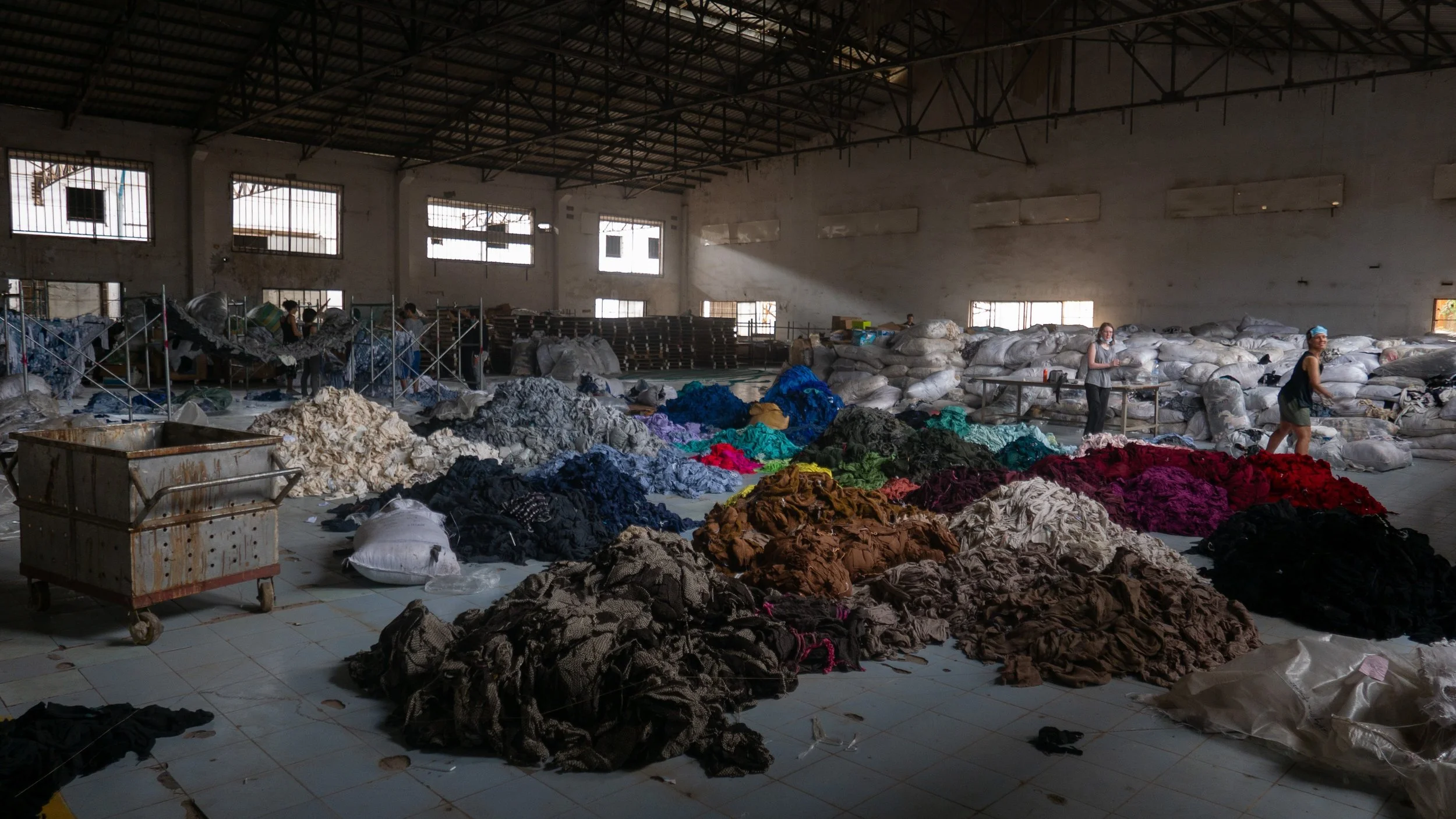It’s no secret that fast fashion is having a devastating impact on the planet. The widely-publicised statistics on the £2.5 trillion industry are shocking. Headline figures include:
Fashion is responsible for 10% of humanity’s carbon emissions (more than international flights and shipping combined)
The fashion industry uses 93 billion cubic metres of water every year (enough to fulfil the needs of five million people)
Some 60% of garments contain plastic, contributing to 500,000 tonnes of microplastics released into oceans every year (the equivalent of 50 billion plastic bottles)
Consumers discard clothing so quickly that the equivalent of one truckload of garments are incinerated or sent to landfill every single second
This is just a snapshot of fast fashion’s environmental footprint, and we mustn’t forget its negative social impact, either. The fashion industry comes with an appalling human cost, with many textile workers – often women and children in developing countries – exposed to terrible working conditions for little or no pay.
Increasing awareness around this issue – from newspaper headlines to the efforts of campaign groups – has led to some meaningful action. The UN Alliance for Sustainable Fashion, for example, is improving collaboration among UN agencies by analysing their efforts in making fashion sustainable, identifying solutions and gaps in their actions, and presenting these findings to governments to trigger policy. Meanwhile, the Forests for Fashion Initiative, led by UNECE, FAO and others, supports innovative solutions in fashion through sustainable forests-based materials.
The transparency and real-time interactivity of social media has also helped, with consumers increasingly holding brands to account for their environmental offensives, and many brands have stepped up their ESG activities in response. Brands like Patagonia, Lush, Stella McCartney, Veja and Nudie jeans, for example, are all helping to push the envelope on sustainable change..
But change is not happening fast enough, and while there is still demand for cheap, throwaway garments, they will continue to be produced on a shocking scale. Shein, for example – the current fast fashion label of choice among young style-conscious shoppers – added a staggering 2,000 new items to its lines every day throughout 2020. How much of that is going to end up in the bin?
Research consistently shows that consumers want their favourite brands to adopt more sustainable practices, yet there remains a separation between consumer conscience and actions. Some 53% of shoppers believe it’s important to buy from brands with ethically working conditions, for example, but only 23% actively research a company’s policy on this.
There are multiple reasons for this disconnect – the cost of living is climbing ever higher, so for many ‘cheap and cheerful’ is the only feasible option. And social media – while bringing some benefits to the fast fashion issue as described above – is a major driver of trends, however quickly they come. The persuasive power of influencers should not be underestimated. And, ultimately, fashion brands still adhering to the traditional capitalist notion of ‘take, make, waste’ are more than happy to exploit this appetite.
So what’s the solution? Unfortunately there’s no silver bullet for the scourge of fast fashion, and in an industry as entrenched in society as fashion is, progress is bound to be slow. However, slow change is better than no change, and the current landscape represents a great opportunity for brands and labels to really set themselves apart from the competition.
By taking sustainability seriously – which means enacting demonstrable change without greenwashing – brands can play a major role in pushing the fashion industry in a positive direction while serving as a champion for conscious consumer choices. This means communicating with all stakeholders in an honest, transparent way about their sustainability activities – and with humility. No-one in the industry is doing sustainability perfectly – no-one in any industry is doing sustainability perfectly. But by bringing all stakeholders along on the sustainability journey, brands can nurture relationships of trust, respect and loyalty – all vital attributes needed to turn fast fashion on its head.
Woodbois Integrated Report
Whether you’re developing a sustainability strategy or seeking to improve the way you communicate an existing strategy to stakeholders, Britetrend offers a range of comprehensive, informed support. From ad hoc consultation to report creation, we can help your business achieve its ESG goals. Get in touch.




